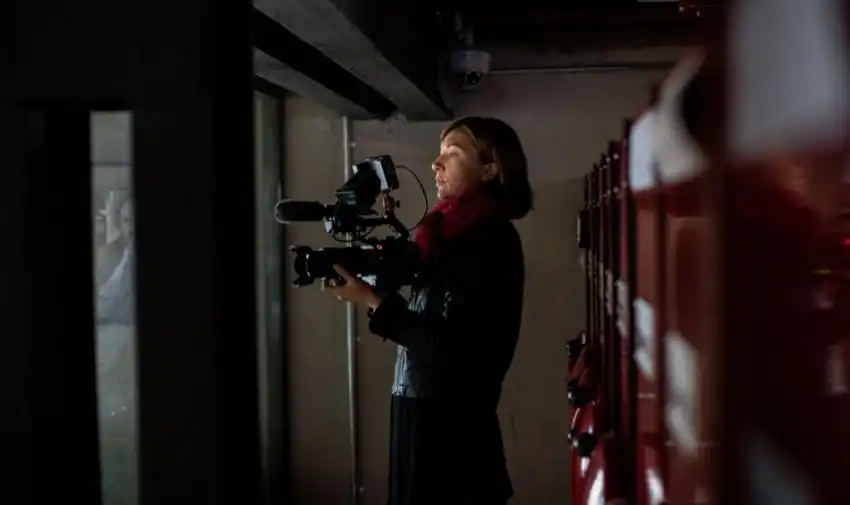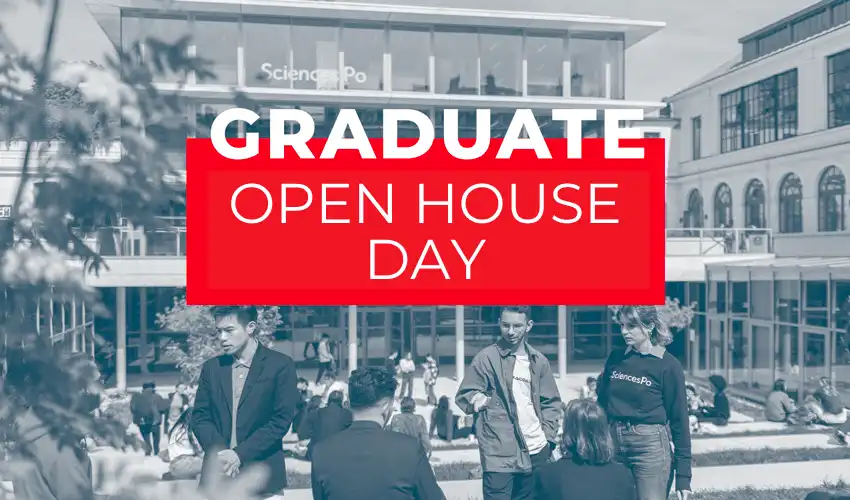Home>"I studied with professors I admire"
06.02.2023
"I studied with professors I admire"

Interview with Hélène Franchineau, graduate from the Dual Degree Sciences Po/Columbia.
May you describe your academic and professional background?
I first got a master’s degree in International Relations at Sciences Po Bordeaux, along with a degree in Chinese (which I first started learning in high school) at Bordeaux University. After graduation, I lived in Shanghai for more than a year, completing an internship at a business intelligence and risk management company. It’s in Shanghai that I discovered I had a strong interest in journalism. I started freelancing here and there, then met the then-Shanghai correspondent for Le Monde, who hired me for a few months as his assistant. He pretty much showed me the ropes of foreign reporting. I was hooked. I came back to France and got into to the journalism school at Sciences Po in Paris. I always had the long-term plan to go back to cover China, once I felt I had the proper journalistic tools and maturity to explain that huge story, in all its complexities, to an audience. Once at Sciences Po, I applied to the dual degree EDJ/ Columbia Journalism School and moved to New York in the summer of 2010. After graduating from the master’s program in 2011, with the digital media concentration, I moved to Hong Kong where I interned at the South China Morning Post. I was then offered a job there as a multimedia journalist: I first covered Hong Kong for the city and business desks (a great local reporting experience) then moved to the online desk as their first video journalist. After 2 years, I left to start freelancing, working as a video journalist with clients such as the BBC Hong Kong bureau. I then applied to an opening at the Associated Press: they were looking for a video journalist for their Beijing bureau. I got the job and moved to Beijing in March 2014. I stayed about four years with the AP as a video journalist in Beijing, traveling to cover breaking news and the biggest stories in China, Asia, and the world. I learnt a great deal at that job. However, after about seven years overall in China, I became eager to start covering other regions (Turkey, the Middle East) and add even more stories/skills (longer form visual reporting, for ex) to my portfolio. I left my job at the AP to start anew as an independent video journalist in Istanbul, Turkey, where I now reside.
What is your job title today? How is your daily routine?
I now work as an independent journalist, DoP (“Chef Op” in French), drone pilot, visual consultant for NGOs, and director. As a video journalist, I cover Turkey and the region for French and international media. I film and direct short documentaries, I also collaborate with NGOs on their visual campaigns (video, social media), and I am a licensed drone pilot, with experience in documentary shootings. I can say that I have no daily routine. Every week is different. I can be covering a story in Istanbul or at the other end of a country, or editing a video, or on a reporting trip abroad. Some days, like today, are quieter: I can just work from home/café and do some research on story ideas. One thing has been constant though: practicing sports (running, swimming) has helped me navigate (successfully, I hope!) the stress associated with the job.
What were the main takeaways from your degree?
The dual degree EDJ/ Columbia Journalism school was great to me because it allows to experience both curricula and both cities. The two schools are very complementary. In Paris, I learnt the basics of reporting and writing with journalists for national newspapers, I learnt how to edit and structure a TV story with broadcast journalists, dabbled in writing for a wire service with the AFP, and so on. At Columbia, I could explore further the things I liked (foreign reporting, photojournalism, short docs) and focus on some key aspects of my profile. I already knew some classes I wanted to attend (“China reporting”, for example). New York, with all its diversity, was my newsroom: there was nothing more exciting than this for an aspiring foreign correspondent.
What memories did you keep from your school, your cohort, your teachers?
I studied with professors I admire and still keep in touch with. Some students became lifelong friends; some became a source of pride and inspiration. I also remember not counting the hours spent in the editing suites finishing a project, because journalism, after all, is a “labor of love.” My fellow students and I were not sure what would happen after graduation, but we were all in this together.
What advice could you give to a student who would like to become a journalist?
I would advise, for an aspiring foreign correspondent, to master the language of the country you live in. You cannot really pretend to cover a country if you rely on someone else all the time. Also, I would advise to study (it does not have to lead to a degree) something else besides journalism. It can be anything: history, medicine, or even accounting! Journalism was not my first degree. I studied international relations and Chinese, then journalism. You never know when this extra expertise can come in handy. The media world is going through such a crisis of trust, more and more people doubt our honesty or reliability (especially in foreign reporting), that in the future, we can only prove this trend wrong by doubling down on our areas of expertise.
Virtual Graduate Open House day, October 2025

On 18 October 2025: meet faculty members, students and representatives and learn more about our 30 Master's programmes.